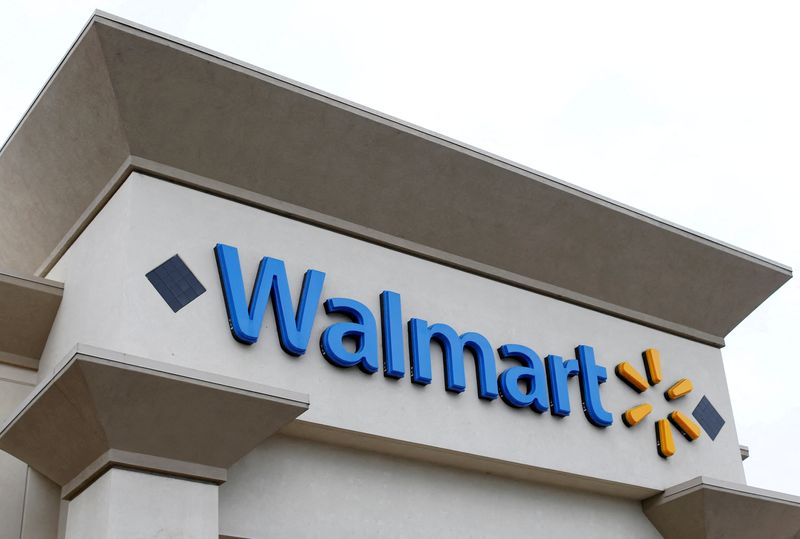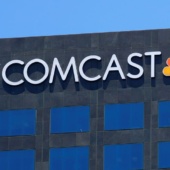(Reuters) -Walmart on Tuesday raised its annual sales and profit forecast for the third consecutive time, with people buying more groceries and merchandise online and at its stores, a sign that it may be gaining market share ahead of the holiday season.
Shares of Walmart, which are up nearly 60% this year, rose about 2% in premarket trading on Tuesday.
The retailer is among the first major U.S. chains to provide insight into the all-important holiday quarter and how consumers are planning spend as inflation ebbs.
“In the U.S., in-store volumes grew, pickup from store grew faster, and delivery from store grew even faster than that,” Walmart CEO Doug McMillon said.
Though inflation has not made much headway in recent months, it is on a downward trend, raising purchasing power. Walmart said it saw share gains across income cohorts mainly led by upper-income households, which make more than $100,000 in annual income.
The retail bellwether now forecast fiscal 2025 consolidated net sales to rise in the range of 4.8% to 5.1%, compared with prior expectations of 3.75% to 4.75% growth.
It also expects annual adjusted profit per share to be between $2.42 and $2.47, compared with its previous forecast of $2.35 and $2.43.
Retailers including Walmart, Amazon.com and Target kicked off the holiday shopping season earlier than usual, offering deals on everything from toys to household items.
Walmart and Target stocked more private-label brands and upped their grocery offerings as consumers seek to purchase essentials and gifts at the lowest price possible.
“The majority of our customers are maintaining their holiday plans year over year amidst the election, the calendar shift, the economic backdrop,” Walmart said.
MORE PURCHASING POWER
In the third quarter ended Oct. 31, Walmart’s U.S. comparable sales rose 5.3%, beating analysts estimates of a 3.61% increase, according to data compiled by LSEG. It saw sales growth across categories including the general merchandise segment that had suffered declines for over two years due to sticky inflation.
Walmart also posted comparable sales growth in its health and wellness category, helped by strong demand for GLP-1 or weight-loss drugs.
As purchasing power increases, analysts expect upper and middle income consumers to mainly drive the shift back in spending on non-essential, nice-to-have merchandise.
The company has invested billions on automation in its supply chain to help stock fresher produce and improve delivery times as consumers increasingly prefer the convenience of purchasing groceries online.



















